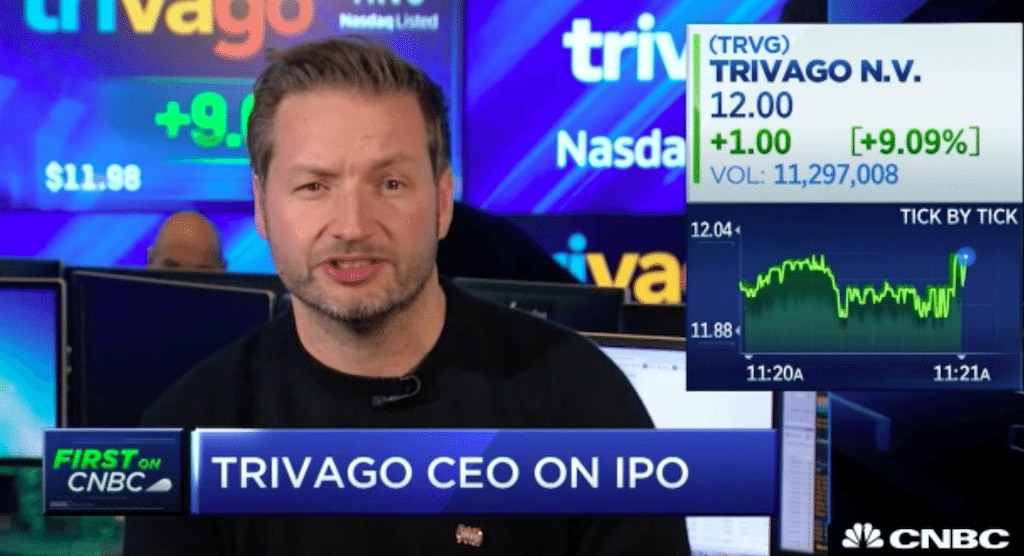Skift Take
Rectifying the difficulties in shopping for hotels online is a tremendously complex problem given travelers' fickle nature -- a business trip today, a romantic escapade tomorrow -- and varying quality levels from property to property even within a given brand. Trivago at least recognizes what one of the main problems is in matching a traveler's hotel preferences with the right hotel and hopes to address it with a heftier bank account after conducting its IPO.
The problem with hotel search these days has little to do with showing more content, including photos, video or virtual reality, or even in improving the mobile experience, according to Rolf Schrömgens, the CEO of newly public company Trivago.
In a CNBC interview Friday, the day Trivago’s stock debuted on Nasdaq, Schrömgens said the key problem — one that can be solved by software — is matching consumers with the ideal hotel, and that means gaining a better understanding about each individual property and what individual travelers expect.
“I think there is a major problem unsolved and that is getting really you into the ideal hotel,” Schrömgens said. “I don’t think that is happening right now. So I think there is nobody is delivering on that right now. There is a huge value that can be unlocked.”
Does that mean displaying more images and videos as a solution?
“No, it is not about showing content,” Schrömgens said. “It is really about understanding a hotel, understanding what’s good in a hotel, what’s bad in a hotel, understanding also about you. What are you expecting as a customer?”
And that’s where the engineers would have to get busy.
“And then matching both together,” Schrömgens said. “I think that nobody is really doing that and that’s a software problem that we want to solve.”
There’s content and then there’s content
Showing more content, though, in terms of more hotel inventory is key for hotel metasearch and booking sites. They are obsessed with signing and wiring up additional hotels in order to be more comprehensive and give consumers the widest choices. In general, when online travel sites add more hotels in a given market, they see traction increase.
But Schrömgens is not downplaying the need for additional hotels and this type of content: Trivago claims to access to more 1.3 million hotels [although a chunk of these may be duplicate listings] in more than 190 countries.
So Trivago clearly believes that adding hotel inventory is important but the solution isn’t about content in terms of adding additional types of photos or videos about specific hotels.
Instead, Schrömgens believes matching traveler intent and preferences when travelers have varied likes and dislikes based on trip type or even whim with the proverbial “ideal” hotel is the issue that needs to be overcome.
And that’s a tremendously complex “software” problem, as he says.
Improving the mobile experience isn’t the issue, either, Schrömgens adds. He said Trivago made the mobile transition over the last three years and now more than 50 percent of its revenue comes from clicks and bookings on mobile devices.
Trivago, which trades on Nasdaq under stock symbol TRVG under the name Travel B.V., made its Nasdaq debut Friday and closed up 7.73 percent at $11.85 per share. The company had hoped to price at $15 per share and would have raised a lot more in net proceeds than the $184 million that it raised.
The Daily Newsletter
Our daily coverage of the global travel industry. Written by editors and analysts from across Skift’s brands.
Have a confidential tip for Skift? Get in touch
Tags: ceos, hotels, ipo, search, trivago
Photo credit: Trivago CEO Rolf Schrömgens talked about what's difficult about shopping for hotels online on December 16, 2016, the first day the company's stock traded on Nasdaq. CNBC
